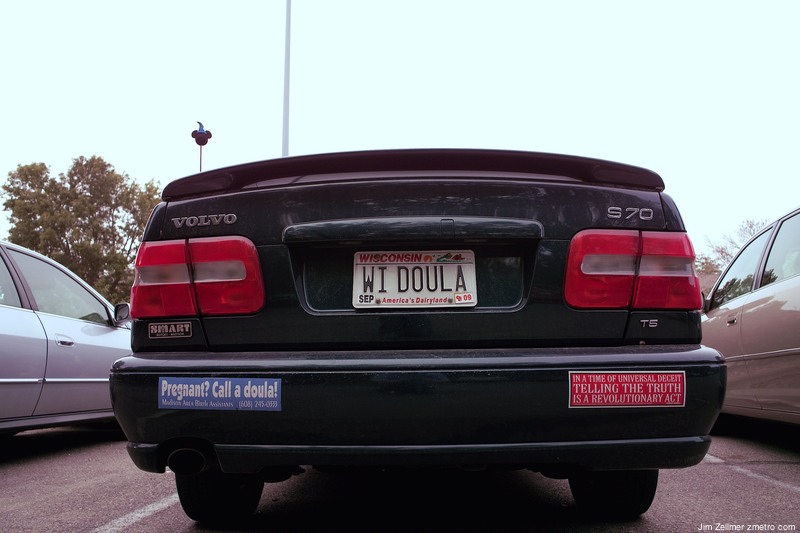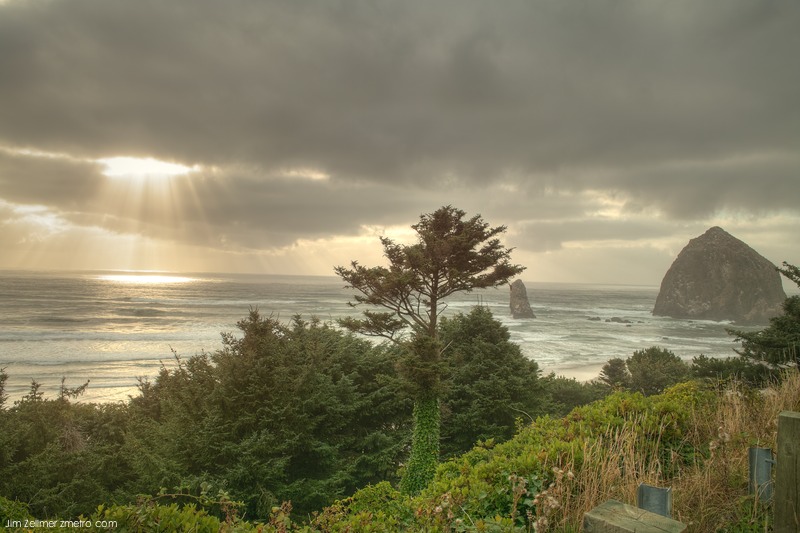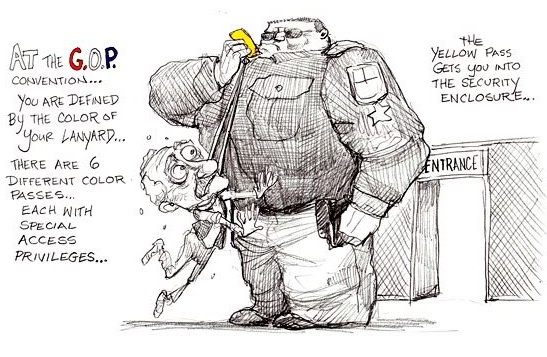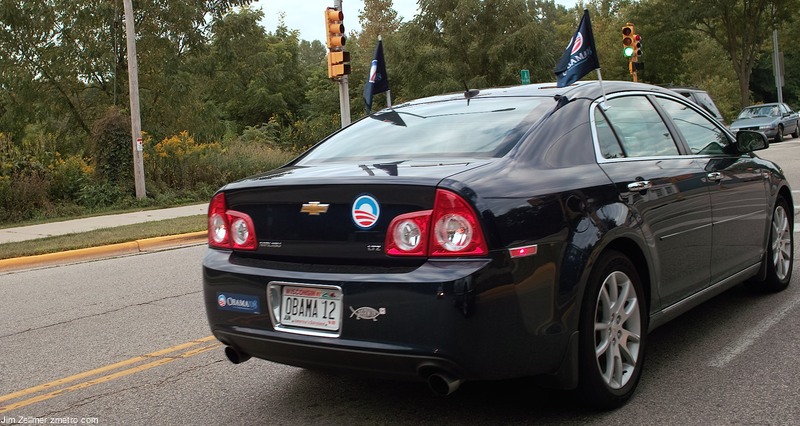TAMMY WYNEN stands near the back of a crowd outside a paper mill in Kimberly, Wisconsin. At a bank of microphones, speakers rail against Adam Smith; one, from the United Steel Workers, literally blames “The Wealth of Nations” for the mill’s impending closure. Many also hint that the soon-to-be unemployed mill workers should vote for Barack Obama in November.
But Mrs Wynen, a 27-year veteran of the paper mill, is not so sure. She cannot remember the last time she saw Mr Obama recite the pledge of allegiance. And her family loves Sarah Palin, John McCain’s new running-mate. Her children have lines from Mrs Palin’s convention speech off pat. Still, Mrs Wynen says she doesn’t know who she will vote for. The candidates look poised to spend a lot of time and money in Wisconsin wooing her.
Ken Burns’ Latest: National Parks
It’s too early for civilians. As dawn’s first light falls on the jagged peaks, creeps down the dwindling glaciers and glides across glass-faced Swiftcurrent Lake, most of the tourists in the Many Glacier Hotel are still snoozing.
But down at water’s edge, three early risers huddle around a camera. One of the guys, leaning on a tripod and waiting for the clouds to arrange themselves over the jagged peaks, has a Beatles haircut, the build of a shortstop and a face you’ve seen before somewhere.
Perhaps during pledge week.
“I want more of the color,” he says, peering through a viewfinder. “OK, I’m doing it.” And the film rolls.
Yes, it’s Ken Burns, solemn PBS documentarian of the Civil War, jazz, baseball, Frank Lloyd Wright, Mark Twain, Congress, the Brooklyn Bridge, and more than a few other American characters and institutions. Beside him stand cinematographer Buddy Squires and writer Dayton Duncan. Upstairs in the hotel, Burns’ wife and 3-year-old are sleeping.
Related: Yellowstone Sunrise VR Scene and Waterton Lakes National Park
Personality Variation by USA Region
US personalities vary by region, say researchers. It’s pretty thin on the details, but luckily the original paper can be found online in full, A Theory of the Emergence, Persistence, and Expression of Geographic Variation in Psychological Characteristics. I haven’t read the whole thing, nor do I know much about personality, so I have put the maps which illustrate regional variation in traits below the fold. But I do want to note the correlations between Openness and the following metrics on the state level:
Bumper Sticker Fun

Shot in Madison’s Whole Foods parking lot.
God’s Handiwork @ Sunset: Cannon Beach, Oregon

45.880822 -123.962131
Clusty Search: Cannon Beach, OR
KAL Illustrations at the Republican Convention

The Economist. Democrat convention illustrations can be found here.
Great stuff.
Obama 12 Sighting

Driving the speed limit early this morning, a dark blue car with flags zoomed past. A blur on my left. The nearby stop light provided an opportunity to take this photo.
Obama 12? Does it imply there are numbers 1 to 11 driving around? Or, is it a play on Adam 12? One needs to be of a certain age to recall the TV series Adam 12.
Finally, the car is a new Chevy Malibu. It’s interesting that there is no mention of Joe Biden on the flags, stickers or plate, which is perhaps, for the best.
Privatizing What the Public Paid For
“Right. It takes unconventional and courageous thinking to come up with a plan that clears a highway lane for the well off, while the middle class and working poor are left to inhale each other’s $5-a-gallon exhaust fumes. The worst thing about this ill-conceived decision … is it allocates freedom of movement according to income.”
— From “Diamond Lanes for the Rich,” by Tim Rutten (Los Angeles Times, April 26, 2008)
Few think of it this way, but America already has a major flat tax that we all pay equally: the 18.4-cent federal tax that is applied to each and every gallon of gasoline we purchase, or the 24.4 cents on every gallon of diesel. Say a young person, who just lost his job at McDonald’s, buys a gallon of gas to get to an interview at Burger King at the same time Warren Buffet buys a gallon of gas to get to the airport in Omaha to board his personal jet: Both the unemployed, below-minimum-wage worker and America’s richest billionaire contribute the exact same amount toward the nation’s highway system on that day.
Now, however, we are being told – to an increasingly urgent drumbeat – that America can no longer afford the luxury of building new infrastructure or even maintaining our current road system, because there’s just no funding for these programs. It’s here that the complete absence of critical thinking about America’s future should astonish and dismay anyone who looks at the facts even casually.
Television will be the first traditional media medium to fall
The move away from traditional, or mainstream media is currently accelerating as more and more people switch to the internet for their information and entertainment. Sales of newspapers are declining, radio advertising is down, and television viewers are switching off in record numbers.
It’s popular in the blogopshere to argue that newspapers will eventually fall, and radio is hardly popular. However, given the current marketplace, television will be the first traditional media medium to completely fail, where as radio has some life left in it yet. Newspapers will survive, but the newspaper of tomorrow will be markedly different.
The great Television switch off
The television switch off is real. In the United States, 2.5 million viewers switched off in the spring on 2008 compared to the same time in 2006. Statistically this is only a small percentage of the overall viewing audience, but among those still watching television, the amount of television they watch each day is declining.
The decline in television viewing is stronger among younger statistical groups. In Europe, a 2005 study from the European Interactive Advertising Association found almost half of 15- to 24-year-olds are watching less TV in favor of browsing the web. A study reported in The Guardian in 2007 headlined with “Young networkers turn off TV and log on to the web.” The television switch off in the United States among younger people has seen the average age of a TV viewer increase to 50.
Open Records Guerrilla
But if you want to download and save those laws to your computer, forget it.
The state claims copyright to those laws. It dictates how you can access and distribute them — and therefore how much you’ll have to pay for print or digital copies.
It forbids people from storing or distributing its laws without consent.
That doesn’t sit well with Carl Malamud, a Sebastopol resident with an impressive track record of pushing for digital access to public information. He wants California — and every other federal, state and local agency — to drop their copyright claims on law, contending it will pave the way for innovators to create new ways of searching and presenting laws.
“When it comes to the law, the courts have always said there can be no copyright because people are obligated to know what it says,” Malamud said. “Ignorance of the law is no excuse in court.”
Malamud is spoiling for a major legal fight.